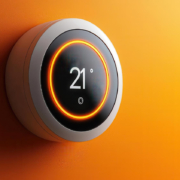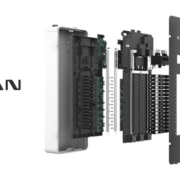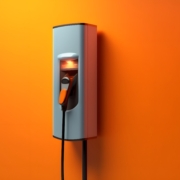Winter Lighting + Heating Tips for Cold Climates
When temperatures drop and the days get shorter, keeping your home well-lit and comfortable becomes a top priority. Winter can be tough on both your lighting and heating systems, but with the right electrical upgrades and smart habits, you can stay cozy while saving energy.
At High West Electric, we know how challenging cold-weather conditions can be. Our experienced electricians help homeowners and businesses across Colorado keep their spaces bright, warm, and energy-efficient all year long. Here are some professional tips to help you adapt your lighting and heating for the winter months.
Upgrade to Energy-Efficient LED Lighting
Winter means longer nights and shorter days, which also means your lights are working overtime. Replacing old bulbs with LED lighting is one of the simplest and most effective ways to lower your energy costs.
LEDs last up to 25 times longer than traditional incandescent bulbs and use up to 80% less energy. They also perform better in cold temperatures, making them ideal for garages, basements, and outdoor fixtures.
If you’re unsure which fixtures to upgrade first, a licensed electrician from High West Electric can assess your lighting setup and recommend efficient, long-lasting solutions tailored to your home or business.
Install Smart Lighting Controls
Adding smart lighting controls is another great way to reduce energy waste during the winter months. Motion sensors, dimmers, and programmable timers help ensure that lights are only on when needed.
For instance:
- Motion sensors are perfect for outdoor security lighting and hallways.
- Timers can automatically turn on exterior lights at dusk and off at dawn.
- Smart home systems let you control your lighting remotely through your smartphone or voice assistant.
Our electrical company specializes in installing smart lighting systems that integrate seamlessly with your existing setup, helping you balance convenience with energy savings.
Use Space Heaters Safely
Portable heaters can be helpful for keeping specific areas warm without turning up the thermostat for the entire house. However, they also pose electrical and fire risks if not used correctly.
Here are a few safety tips from professional electricians:
- Always plug space heaters directly into a wall outlet, never into an extension cord or power strip.
- Keep heaters at least three feet away from flammable materials.
- Choose models with automatic shut-off features in case they tip over.
If your electrical system trips frequently when using space heaters, that may be a sign your home needs an electrical upgrade. High West Electric offers safety inspections and panel upgrades to handle increased winter power demands.
Schedule an Electrical System Check-Up
Cold weather can reveal weaknesses in your home’s electrical system. Flickering lights, tripping breakers, or outlets that don’t work properly can indicate wiring issues or overloaded circuits.
Before the winter season kicks into full gear, have your electrical system inspected by a licensed electrician. A professional check-up can identify potential hazards and ensure your system is running efficiently.
High West Electric offers comprehensive electrical inspections for residential and commercial clients to prevent outages, improve safety, and enhance energy performance.
Optimize Your Heating System with Smart Thermostats
A smart thermostat can help you manage your heating system more efficiently. These devices learn your habits and adjust the temperature automatically based on your schedule.
For example, you can program your system to lower the heat while you’re at work and warm up your home before you return. Many models also provide energy usage reports so you can track savings over time.
Professional installation by an experienced electrical company ensures your smart thermostat integrates properly with your existing HVAC and wiring systems.
Add Layered Lighting for Comfort
Winter can make interiors feel dark and dull. Layered lighting, using a combination of ambient, task, and accent lights, can create a more comfortable and inviting atmosphere.
- Ambient lighting: Soft overhead lighting to brighten entire rooms.
- Task lighting: Desk or counter lights for focused activities.
- Accent lighting: Decorative or highlight fixtures to enhance design.
Our electricians can help design and install lighting layouts that bring warmth and style to your space while improving functionality.
Protect Outdoor Wiring and Fixtures
Outdoor electrical components are exposed to harsh conditions during winter. Snow, ice, and moisture can damage outlets, wiring, and fixtures if they aren’t properly sealed.
Make sure all outdoor outlets are equipped with weatherproof covers and GFCI protection to prevent electrical shocks. Check that outdoor lights are rated for wet or damp locations.
If you notice flickering or non-working exterior lights, call a professional electrician immediately. High West Electric’s technicians can inspect and repair your outdoor wiring safely and efficiently.
Insulate and Seal for Efficiency
While it’s not purely an electrical upgrade, proper insulation plays a huge role in heating efficiency. Even the best electrical heating systems can struggle in a poorly insulated home.
Check for air leaks around windows, doors, and outlets. Adding weather stripping or outlet gaskets can make a noticeable difference in comfort and energy use.
When paired with efficient lighting and electrical systems, insulation improvements help reduce overall energy demand and save on utility bills.
Prepare for Winter Power Outages
Winter storms can lead to unexpected outages. Protect your home or business by investing in a backup generator.
At High West Electric, we install and service whole-home generators that automatically kick in when the power goes out, keeping your lights, heating, and critical systems running without interruption.
Final Thoughts
Adapting your lighting and heating for cold climates doesn’t have to be complicated. With a few strategic upgrades and the help of a trusted electrical company, you can enjoy a safer, warmer, and more efficient home this winter.
Whether you’re interested in smart lighting, energy-efficient upgrades, or professional electrical inspections, High West Electric is here to help. Our experienced electricians provide top-quality service designed to keep your home bright and comfortable all season long.
High West Electric is based in Denver, CO, and serves the entire metro area. Our customer service-based approach ensures that each client enjoys the process from installation to the end product – no matter the size of the job. Our goal is to be YOUR electrician and offer an experience that goes Beyond the Wires. Visit our website to learn more.











